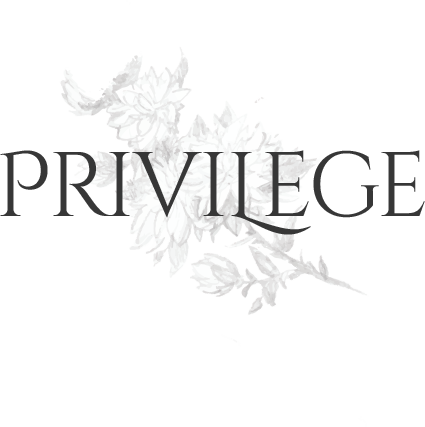
One of the things about being 66 is memories. Flocks and layers. We the older humans perhaps discovered palimpsests, rather than the art historians who own the concept now.
There are memories that surface as fragments of events, vivid. The feel of the skin on my mother’s cheekbones, my unfettered happiness the day of my second wedding, the smell of Sea and Ski sunscreen, my best friend’s phone greeting, the first night in the hospital with my daughter after her birth, the sound of my son’s cries and quieting in his plastic bassinet 7 hours after he was born in the selfsame place. One beach in Barbados.
There are other memories we can scavenge along a more linear path, in categories. My Jobs. Good Food I’ve Made. Old Friends, to say nothing of the memories we know we had but have lost. The office of Cameron Mackintosh, where I worked 1979-80 for six months, what was the name of the theater it was over? The stairs were very steep, the bathroom ceiling very low.
Lately I’ve been thinking about pain. In particular, how we coped back when a painful event happened, and how we bring those memories forward. Because we are everything we’ve ever experienced.
(I cannot speak to clinical trauma, which is defined as that with which we could not cope, and therefore have stored away in our circuitry somewhere. I hope you have none, or that you’ve found resources to help you reintegrate the events or place them in context. )
But, and I’m getting to the whole point, at 66 I’m finding it useful to examine the ways in which I have habitually coped with painful events. On the one hand, particularly when colored by shame, I’ve tended to store them in mental closets ready to ambush me at 3:00am all the stronger for their rest among my towels. On the other, where possible, I’ve made a practice of building conceptual models to frame and tame. These have caged my distress, if you will, sometimes more perfectly than either. Difference being that we can see through cages, that the sense of control is stronger than for things in closets.
I suppose we could say I’m now in the process of opening both doors and bars. Carefully. For 20 minutes a day, maximum. Beasts roped.
This is mine to do. It causes me to re-experience pain, which I do not enjoy.
But I’m puzzling over where that pain has involved others, how much to involve them? At the moment I’m thinking we should read people’s cues and, where we have the internal strength, ask permission to re-open wounds. Or at the very least, diligently handle what we can ourselves first. This doesn’t apply to abuse, or violating aggression. Free pass.
But I truly don’t know. This is the first time in my life I’ve had the time and emotional space to consider such things, rather than just getting through. I am curious if others are thinking about anything similar.
Also, I was at my 45th Princeton Reunion last weekend.
Have a wonderful Saturday. My fuchsias are blooming.

16 Responses
Unsurprisingly, it’s something I’ve been not only thinking about a lot, but also have been having many dreams, slightly nightmarish, about this very subject ~ “How much to involve the other person…” or whether to try to resolve it, within myself. It makes one very vulnerable, and doesn’t always have the outcome one would hope for, at least that’s been my past experience. And even if it seems to “resolve” – does the past hurt go away or how sincere is the resolution? Again, my experience, but a similar hurt always comes up again, albeit in a different form. Is this making any sense? Right now, I’m trying to come to terms with resolution within myself and filing it away under “another thing to know about this person” and just to be wary of it, even if the relationship is continuing.
I think that’s it. The memories we all have and the role we think others play in the events, may not align at all with others’ perspectives. So the chance of getting what you want, unless it’s someone who prioritizes their relationship with you over most everything else, is low.
Yes! Well put, both Lisa and Kathy!
I’m dubious about how much one can work out past hurts with “the other person,” and the best I’ve been able to do is come to terms with it for myself, whether that means maintaining the relationship (with changed boundaries which they may or may not perceive) or letting it go or something in between. When I was younger, I really believed in the possibility of reconciliation through clear communication, but I’ve come to see how impossible that is for many of us. I like the wisdom of filing away within oneself “another thing to know about this person” and protecting oneself accordingly.
As I read, I’m thinking that it partly depends on whether we feel ourselves to be the wounded or the wounder. As the wounded, reaching out is very tricky. As the wounder, less so, and still no reconciliation or reception guaranteed.
Your interest in finding resolution is impressive. That said, I find, without exception, we each have our own angst and choose to or not to deal with it. Getting someone else to mutually share/embrace/resolve angst is often unlikely. In my opinion: Let the buyer beware often applies to people as well.
Oh I admit, I am much more inclined to put it away and wait for time to heal:). But yes, others rarely feel or want to feel your angst. And really, should they?
I had an experience when I was in my 30s where someone close to me came to me and as a part of their recovery program wanted to apologize for hurting me. It was early in their recovery and they hadn’t actually thought of anything they’d done that had hurt me, and I was hard pressed to think of anything either. They were working on themselves and needed to say it.
But, that gesture – I know I’ve hurt you and I’m sorry – was a catalyst. As time went by and my loved one matured in their recovery program, and I learned more about recovery I came to see where I had been impacted. I loved that person dearly and did not come back later with the things I became aware of, but it was helpful to me to think about our relationship in different terms. My life was improved because I could see why I was doing things more clearly, even without a heart-to-heart discussions of the hurts.
My take is that if you think that you have hurt someone else and are still in relationship with them, and can express your regret, it may be helpful to them. Particularly if you are an important person in their lives and their recognition that you hurt them could help them live a better life going forward.
If someone else has hurt you it’s different. It’s on them to reach out to you, and even then you are not obligated to tend to their healing, only to your own.
This is a lovely story, Rose. Thank you. I have had occasion to express regret to people I love dearly, and it did seem to help all involved including me.
I love this post of yours. At age 71, I certainly have many memories. I tend to focus on the best of them and only think of the troublesome ones fleetingly–telling myself that they are the past and no longer something I need to concern myself with. For me, it’s enough to look forward and try to improve each day. Thank you for yet another thought provoking post.
You’re so welcome. Letting the past be passed.
Reading this post and the responses has made me feel how very immature I still am ! (70 yrs old this coming September). I think that when I have tried to resolve things with other people it has mostly been entirely selfish/self serving and anyway we did not have the same memories of what happened . I am thinking of my parents here – but other people also seem much better than me at letting bygones be bygones . And many people genuinely prefer that to reopening wounds . However technically therapeutic !
Yes, well, technically therapeutic and actually healing can be two quiet different phenomena xox Also, I feel like we are always right to ask our parents to apologize but also we need to accept that perhaps and probably they were doing the best they could and we are adults now. Unless, and always unless, abuse was involved, emotional or physical.
Learned some powerful lessons about forgiveness early on. These have helped me move through and on from all sorts of difficulties and challenges so that I can be present for the present as much as possible. No regrets, just operate with a basic assumption that everyone has pain whether I see it or know about it and afford as much by way of grace as I can. Simplistic as hell but keeps the emotional baggage at carry-on level. Your description of memories here is as rich as I have ever read. Thanks for capturing that in words.
Thank you for this beautiful comment. “basic assumption that everyone has pain whether I see it or know about it and afford as much by way of grace as I can.”
Something I have been wrestling with is that the memories I have are almost exclusively the memories I’ve already reinforced – yes, that happened, and then I remembered it a year later, and then I remembered it five years later, and now I still remember it, whereas all sorts of things of potentially equal weight or vividness are gone. So part of me wants to very deliberately store the positive memories but aim to not remember the negative ones (at least, those which do not have practical action sorts of implications; we want to remember our allergies and when it is likely best to ignore a particular person-from-the-past’s emails/texts rather than replying) – but then also, yes, there are things that affect us encoded in us from the Bad Stuff, and how are we going to get those splinters out if we don’t have enough data on them? Anyway. It’s tricky.
The issue of those memories that get freighted with our whole history, I agree. And photos have made that so much more acute. It is a question how do we best get the splinters out, as you so aptly put it.
Comments are closed.